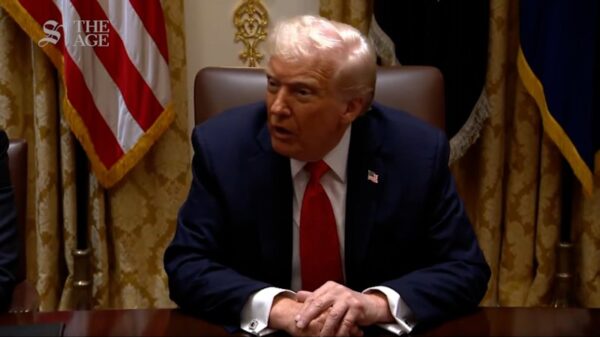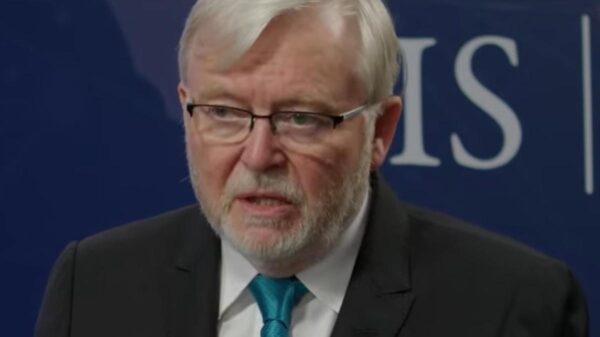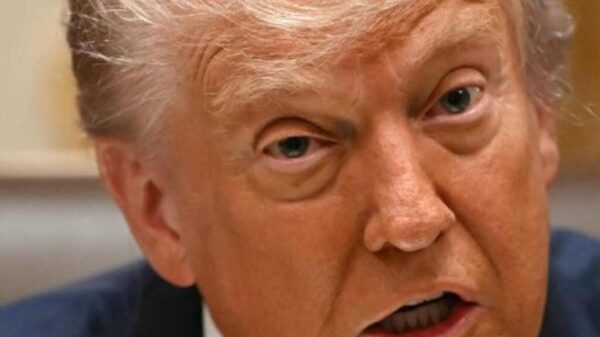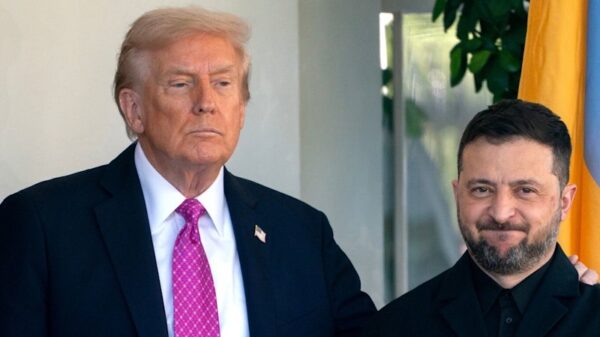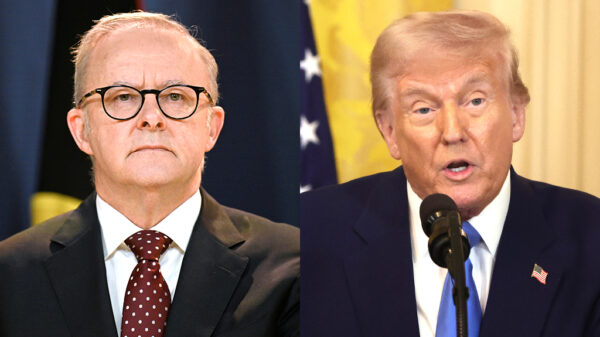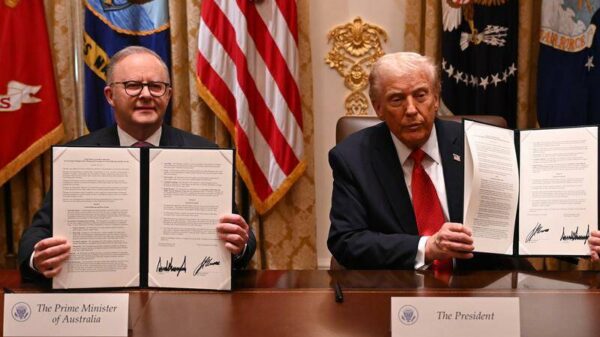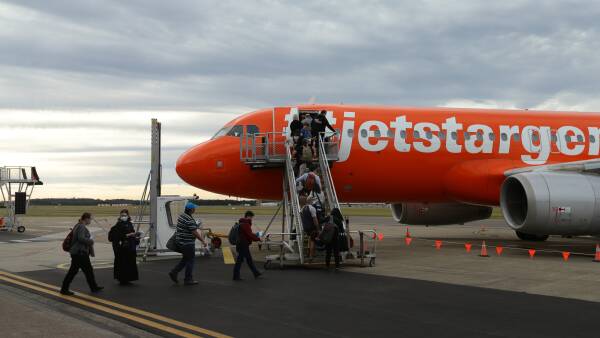UPDATE: President Donald Trump and Australian Prime Minister Anthony Albanese have just signed a landmark $8.5 billion deal focusing on critical minerals and rare earths, crucial for both nations’ military and economic strategies. The agreement was finalized during a high-stakes meeting at the White House on October 20, 2025, emphasizing the urgency of strengthening ties amid growing geopolitical tensions.
As the meeting unfolded, Trump expressed his commitment to enhancing the United States’ military capabilities, declaring, “We have been long-term, long-time allies,” and noted that this deal is part of a broader strategy to secure essential resources and maintain a competitive edge over China.
During a press conference, Trump was asked about the delay in this meeting, which took nine months to arrange. In a surprising exchange, he feigned ignorance about Australian Ambassador Kevin Rudd, who had previously made critical remarks about him. “I don’t know anything about him,” Trump quipped, showcasing his characteristic bravado while dismissing Rudd’s relevance. This moment highlights the ongoing complexities in diplomatic relationships, especially with figures like Rudd still in play.
The critical minerals deal is expected to significantly bolster both nations’ supply chains and military readiness, with Trump claiming, “In about a year from now, we’ll have so much critical mineral and rare earths that you won’t know what to do with them.” This statement underscores the strategic importance of these resources in the face of global supply chain vulnerabilities.
Albanese, who described the agreement as a pivotal step, stated, “This is an $8.5 billion pipeline that we have ready to go,” emphasizing the immediate economic implications for Australia. The urgency of this deal stems from rising tensions with China, which Trump noted multiple times, stating, “They are not taking advantage anymore,” referring to the tariffs imposed on Chinese imports.
Amid discussions of military cooperation, Trump highlighted the ongoing efforts to enhance defense capabilities, saying, “We are really working on anything having to do with military. Military protection. Military ships, vehicles, guns, ammunition… everything.” This focus on military readiness reflects the broader context of national security amid evolving global threats.
As the meeting progressed, Trump also commented on the international landscape, addressing challenges in Ukraine and the Middle East. He expressed skepticism about Ukraine’s prospects against Russia, stating, “I don’t think they will, but they could still win it,” indicating the uncertain nature of global conflicts.
The engagement concluded with both leaders reaffirming their commitment to a strong alliance, with Albanese noting the need to “improve the relationship even further.” This sentiment resonates deeply in a time when international partnerships are increasingly vital for economic and security stability.
In summary, the signing of this critical minerals deal marks a significant milestone in U.S.-Australia relations, with far-reaching implications for both nations’ defense strategies and economic futures. The urgency of this agreement is a clear response to the shifting global landscape, particularly concerning China’s assertiveness.
As developments continue to unfold, observers will be keenly watching how this partnership evolves and what it means for international relations moving forward.






